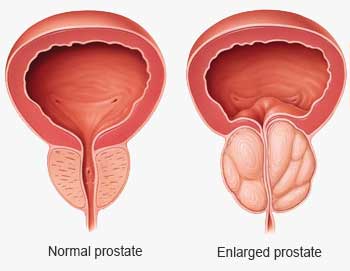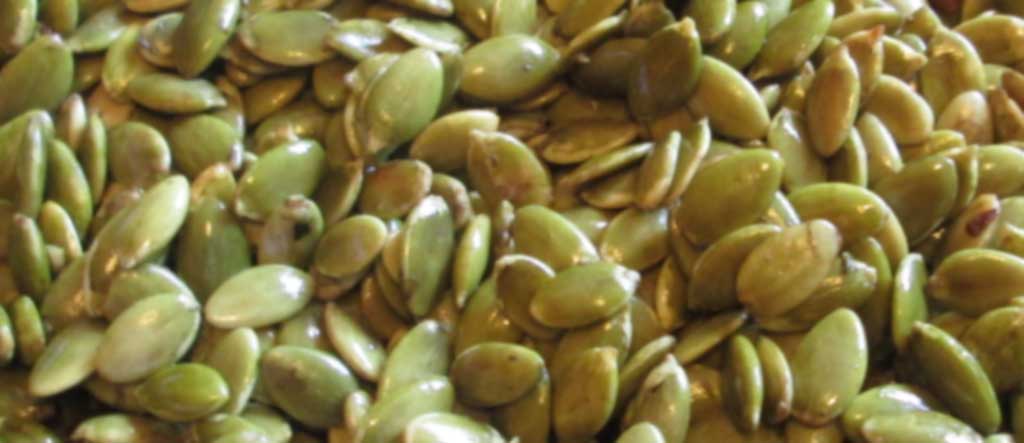BPH (enlarged prostate)

Benign prostatic enlargement is also called benign prostatic hyperplasia (BPH) or benign prostatic hypertrophy. BPH commonly affects men over the age of 50 years. The prostate gland sits beneath the bladder and just above the rectum. It encircles the urethra, which empties urine from the bladder. When the prostate gland expands, it presses in on the urethra causing the muscles around the urethra to contract which can make it difficult to urinate and to fully empty the bladder. Prostatis is inflammation or infection of the prostate gland, its symptoms are similar to BPH.
Symptoms of BPH can include:
- An increased need to urinate, especially at night (nocturia)
- Difficulty starting urination
- Dribbling urination
- Painful urination (dysuria)
- Incomplete emptying of the bladder
- Recurrent urinary tract infections (UTIs)
—incomplete emptying of the bladder can lead to infection. - Blood in the urine (haematuria/uraemia),
— BPH can cause small blood vessels to burst
BPH is believed to be due to hormonal changes associated with aging that result in an accumulation of testosterone in the prostate, and an increased conversion of testosterone to a more potent form known as dihydrotestosterone (DHT). Increased levels of testosterone and DHT are largely due to a decrease in their metabolism and removal from the body combined with an increase in the activity of the enzyme 5-alpha-reductase, which converts testosterone to DHT.¹ Mucus congestion in the prostate can also be a contributory factor.
There appears to be three stages of prostatic enlargement. The first stage is characterised by the stream of urine growing thinner and the urge to urinate increasing. Some men will notice that it takes more time for the sphincter muscle to relax and urine to pass. Many men remain at this stage for the rest of their lives, and this stage is very responsive to herbal treatment.
In the second stage, the retention of urine increases, and the bladder never fully empties. The urine that remains in the bladder is referred to as residual urine.
In stage three the residual urine increases, stagnates, distends the bladder creating back pressure and eventually causes kidney damage and uraemia. At this stage surgical intervention is necessary.
—James Green, Herbalist²
5 Tips BPH:
- Sip filtered water throughout the day, preferably room-temperature rather than cold.
- Avoid alcohol, especially cold beer, caffeine and sugar which can negatively affect how your body metabolises testosterone.
- Eat ½ cup of raw pumpkin seeds daily or try my pumpkin seed pâtè. Pumpkin seeds are rich in zinc, which have been proven to reduce the size of the prostate by inhibiting the conversion of testosterone to DHT.³ Poppy, sunflower and sesame seeds are mucilaginous and help to decongest the prostate as well as being high in zinc and linoleic acid (Vitamin F).²
- Eat a daily serving of lycopene-rich vegetables and fruit, such as tomatoes, spinach, kale, mangos, broccoli and berries. Lycopene is an antioxidant, it is 100 times more potent than vitamin E (vitamin E itself is 125 times more potent than glutathione, one of the major antioxidants naturally produced in the body).4
- Try Kegel exercises to strengthen and tone the prostate gland. James Green recommends Kegel exercises as the single most important, action you can take to ensure prostate health. This Wiki page will show you how.
Herbal Treatment for BPH
Saw Palmetto berry is a specific herb commonly used to treat BPH. It helps to flush excess water from the body but more importantly it helps to inhibit the testosterone-5-alpha-reductase transforming testosterone into DHT. Stinging nettle root has been shown to relieve nocturia and reduce the conversion of testosterone to DHT.³
A herbal formula is likely to include anti-inflammatory herbs to help relieve pressure on the urethra, demulcent herbs such as Marshmallow to soothe and cleanse, along with diuretic and anti-microbial herbs to treat infection. Herbal treatment of BPH will not only address the health of the prostate but also the body as a whole. Tonic herbs such as Korean ginseng can improve energy levels. Circulatory herbs increase circulation and benefit the heart. The endocrine and immune systems also need to be addressed. Where stress is a contributory factor nervines and adaptogens can help.
Always respond to the call of nature.
Do not put off urinating when you feel the need as this can reduce the tone of the genito-urinary organs. Address issues and concerns that are a source of excess stress. Get outdoors and engage in activities that help you to de-stress or practice mindfulness. Eat a variety of foods with an emphasis on whole grains, fresh produce, fermented foods and sea vegetables.
This article is for information purposes only.
If you think you have a problem do not self-diagnose. See a qualified medical herbalist or consult your GP and make an informed decision based on information that is specific to you and not general in nature.
References:
(1) Prostate Enlargement (Benign Prostatic Hyperplasia) Online article. Available at: https://doctormurray.com/health-conditions/benign-prostatic-hyperplasia/ (accessed 16 June 2016)
(2) Green J. The Male Herbal, Health Care for Men and Boys. 4th ed. California: The Crossing Press; 1995. p. 104.
(3) Duke J. The Green Pharmacy. Emmaus Pennsylvania: Rodale Press; 1997. p. 367.
(4) Lycopene Helps Benign Prostate Hyperplasia (BPH). Online article. Available at: http://www.progressivehealth.com/how-lycopene-can-help-reduce-an-enlarged-prostate.htm (accessed 16 June 2016)
Image source: https://commons.wikimedia.org/wiki/File:Normal-vs-enlarged-prostate.jpg
